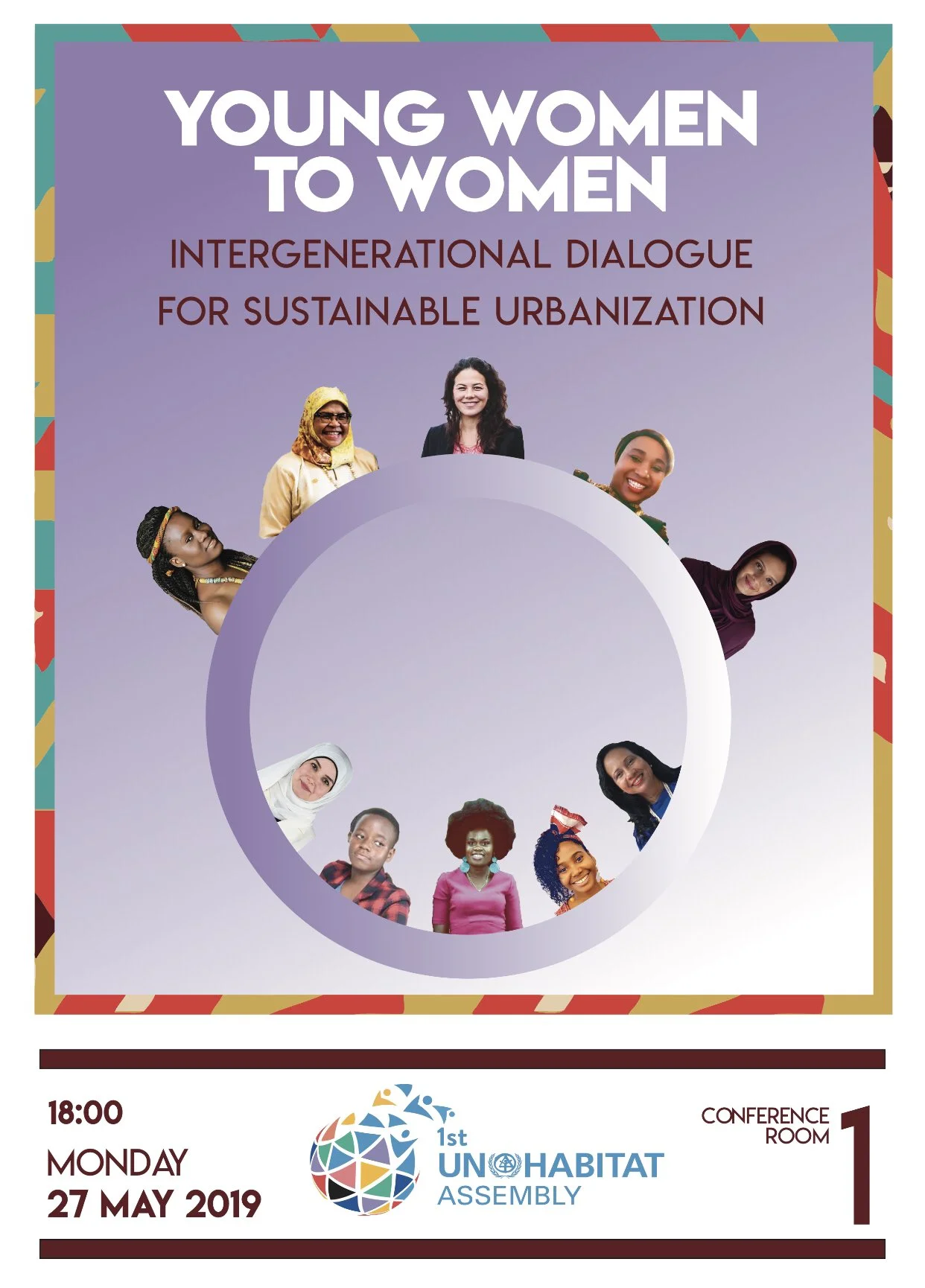Promoting Intergenerational Women’s Leadership for Sustainable Urbanization
The link between gender equality and sustainable urban development is undeniable. Sustainable Development Goal 11 issues a clarion call for humanity to work together to ensure that cities and human settlements are inclusive, safe, resilient and sustainable. This goal cannot be accomplished without addressing the specific need for safe, inclusive and affordable housing, transportation, public spaces and services for women and girls. Women and girls must also be empowered to deliver on their potential, to be full and equal participants in shaping the way cities are designed and function, from policy, to planning, and implementation.
The role of young people in implementing these goals, particularly at the local level as articulated in the New Urban Agenda, cannot be underestimated. It is increasingly evident that young people are seizing leadership of the global climate and sustainability movement. One of the most visible examples, Greta Thunberg, who at the age of 15 began protesting about the need to combat climate change in her native Sweden, has since become an outspoken activist on the global stage. Greta has inspired her peers from across the world, and from all cultures and backgrounds, such as Leah Namugerwa, 14, from Kampala,
Uganda, who has led her classmates in local cleanups and organized climate change rallies in her community.
These young women’s actions demonstrate that leadership does not, and must not, sit solely with adults – children and youth have the passion, knowledge, and capacity to effect real and positive change. Adults may no longer simply dismiss these young activists as “ill-informed” or “naive” – young people are now receiving their due, being recognizing as peers, and fellow compatriots in the fight for a sustainable future for all.
In recognition of this important global trend, the “Young Women to Women” event will bring together girls and young women with adult leaders to discuss how women’s and girl’s leadership can be supported and cultivated. This will be a two-way dialogue, the young women will educate their adult peers in what support they need, as well as to gain from the experiences of these seasoned leaders in the fight for gender equality and a sustainable future. It is further hoped that a longer-term goal of the dialogue will be the development of an Intergenerational Women’s Toolkit, designed to assist women of all ages in bringing about a reality in which our cities and human settlements are sustainable, gender-responsive and inclusive.
Run of Show
The event will be held with video/ other appropriate technological capabilities, so that both a local audience may be actively engaged together with a wider global audience through means of video broadcast and social media tools.
The proposed format is a “Davos Style” discussion. Questions will be taken both from the live audience, as well as virtually via online and social-media platforms.
Panel members:
Leaders
Minister Jenan Mohsen Hassan Ramadan (Kuwait)
UN-Habitat Executive Director Maimunah Mohd Sharif
Dr. Reem Al Saud
Severn Suzuki
Youth
Shamoy Hajare (Jamaica)
Emma Stevens (Miꞌkmaq Nation, Canada)
Emmanuel Laurinda Godjo (Benin)
Sally Kimathi (Kenya)

